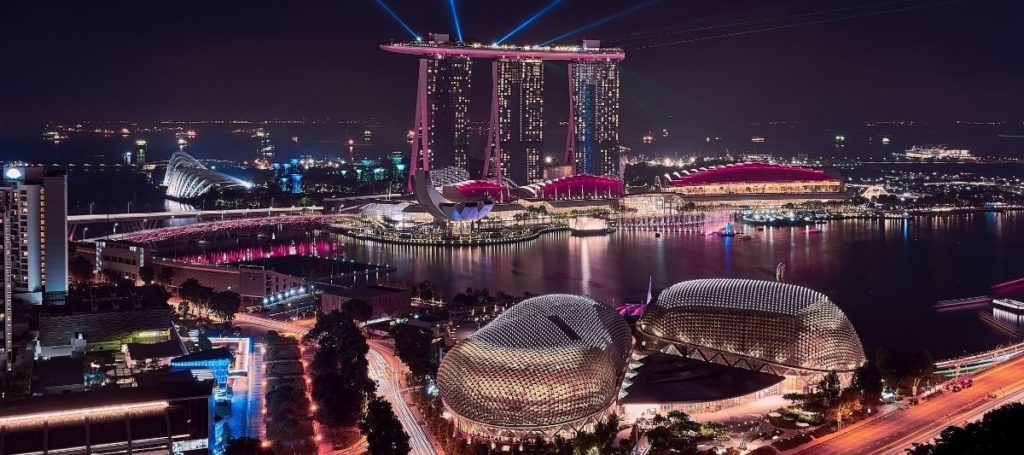Singapore has strengthened its economic ties with China, following the 30th anniversary of the establishment of diplomatic relations between the two nations on Saturday.
Chinese President Xi Jinping reaffirmed on Saturday that China was “ready to join efforts with Singapore to uphold multilateralism and free trade, push for greater progress of bilateral relations and contribute to regional and world stability and prosperity”, according to Xinhua News.
Singaporean Prime Minister Lee Hsien Loong also replied with a congratulatory letter to Chinese Premier Li Keqiang, stating, “We share a strong interest in enhancing ASEAN-China relations, and upholding free and open trade through agreements such as the upgraded China-Singapore Free Trade Agreement and the Regional Comprehensive Economic Partnership.”
Three of the largest Chinese technology firms, Tencent, Alibaba, and Bytedance, will be expanding their operations in Singapore. As geopolitical tensions continue to grow between China and the US, China’s largest tech firms are increasingly turning to Singapore, which has maintained a neutral political stance, for economic support.
The tech firms also face rising hostility from other major markets such as India, who recently banned Tencent’s hit mobile games PUBG Mobile and Arena of Valor from Indian app stores a month ago.
According to Channel News Asia, Tencent planned to open a new office in Singapore to “support our growing business in Southeast Asia and beyond”, with this new hub being the latest addition in its arsenal of Southeast Asian offices located in Malaysia, Indonesia, and Thailand.
The company also explained that their new Singapore office would “enable us to capture potential from the rapid pace of digitisation and meet the demand for Internet-based services and solutions in Singapore.”
Additionally, Bloomberg reported that Alibaba is in talks to invest USD 3 billion in Grab, Singapore’s largest ride-hailing company. If the firms manage to agree on a deal, it would further strengthen Alibaba’s power in Southeast Asia; Alibaba has already invested USD 4 billion in its e-commerce subsidiary Lazada, which has been dubbed the second-largest e-commerce firm in Southeast Asia.
Singapore has long been considered a neutral player in regards to their relations with the US and China. The two nations have maintained strong trade relations in recent years. In 2019, China was Singapore’s largest trading partner, importing USD 51.6 billion in Singaporean export shipments – 13.2% of Singapore’s total exports.
The city has risen in international eminence in the last two years as its rival city, Hong Kong, has come under increased scrutiny following months of violent pro-democracy protests and a slew of tightening political restrictions, including the controversial National Security Law.
Singapore is now seen as a prime location for corporate expansion for both Western and Asian companies, given its advanced financial and legal system, booming technology sector, and geographic proximity to China.
However, Nick Redfearn, deputy chief executive at UK-based consultancy firm Rouse, believes there is another key reason as to why Singapore has attracted so much foreign direct investment compared to other Southeast Asian countries. Redfearn told the BBC that Chinese companies can utilise regional headquarters to downplay the appearance of Chinese investment, as “regional headquarters, operating on behalf of parent companies, act as the foreign investor in countries such as the Philippines, Indonesia, Vietnam and elsewhere.”
Related Articles
Singapore Tightens Work Visa Requirements, Encourages Firms to Hire Locally
Fitch Hands Down AA- Rating to “Big Three” Singaporean Banks
Singapore Pioneers Facial Verification Scheme Amidst Privacy Concerns





